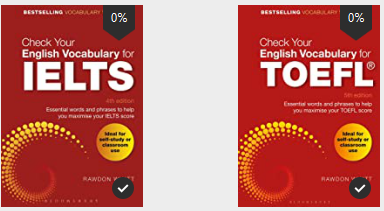A huge part of any learning process lies in repetition: doing something over and over again until whatever skill you wanted to learn has been internalized.
Though most participants in my classes are more interested in using what they already can, i.e. speaking with each other, communicating ideas, discussing issues etc. there might still be some need for additional practice in form of repetition. However, what do we mean by that? What kind? What kinds of activities might be useful, or more useful than others in language learning? Learning a language is not quite the same as learning a skill like a new figure in dancing or an instrument.
Structuring the teaching of something as complex as language is extremely difficult, if not outright impossible. A teacher can only be a guide trying to enable learning processes in their learners. The role of teaching, methods of teaching are an ever recurring topic of EFL/ESL literature, among class participants and teachers. But it is the learning we should focus on.
Teaching is often seen as finding ways to quicken the process of getting the language into learners’ brains. However, there are no short-cuts. It is a life-long path of exploration. And things get forgotten along the way, words come and go. Knowledge, especially of words, is in constant flux, as you might realize even as a native speaker when you have forgotten a word or expression, a name:
“What was the word again for ….?”; “What do we call that thing…?”
It is impossible to learn a language completely.
This is why the best learners are those who go for quantity (and are not too concerned with mistakes, ‘right-or-wrongs’). Who integrate the second, or whatever language it is they are trying to master, into their everyday life.
If you are a regular news reader, read a few articles in English. If you like to watch Netflix series, watch them in the original and switch on the original subtitles (no translations) if necessary. Rewatch, reread. If your job requires English, read all manuals, instructions etc. in English, don’t go for translations into your native language. When you check something on wikipedia, check the English page, it is the most extensive one anyhow. Immerse yourself.
When it comes to improving your vocabulary, I have sometimes felt that trying to memorize words outside a context is a waste of time, and something I personally have given up. The words simply don’t stick. Though I used to recommend using language cards (instead of random lists) to practice individual words and phrases, I still find that regular and extensive reading is the best way to improve your vocabulary.
However, it also depends on which level of word knowledge you are on. If you still need to build up basic vocabulary, then the word card approach is valuable.
The crucial question in this respect is: what or which words do I need to learn? One answer is: go with frequency. Words used most often are definitely ones you should know and those every beginners class focusses on. But beyond the beginners level where you learn basic words of everyday life, how do you know which words and phrases are more frequent than others? And here, again, the answer has to be: exposure. Listen to what people say. Read magazines, newspapers and books of a wide topical variety. If you have special interests, then go for material related to that.
There are many really good vocabulary practice books that sort out vocabulary by topics and functions. I use them occasionally in classes, but they are also really useful for additional self-study. Two examples based on IELTS material or TOEFL:

The author has written many more, so just check them out yourself.
The IELTS webpage also offers tests and practice material online
If you would like to have an idea of your vocabulary size, go to vocabularysize.com
You can find another, shorter test on Merriam-Webster’s website. We did this together in a group. It was actually fun.
Talking about words can also be quite useful for memorizing them. Comparing synonyms, trying to find out the differences between words that are easily confused or that seem similar, but are used differently. Recently, in a class, we tried to find out the differences between repercussions, ramifications and consequences. The dictionary Glosbe.com is great for this kind of activity as it provides loads of examples in which the respective words occur. We looked at them and tried to describe and analyze their different contexts of use.
I will post examples of this under the new category: Language Exploration and, more specifically under What is difference between…
